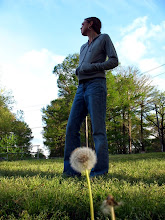 Both Colchester Farm, the CSA farm where I lived, and Oakley Laurel Farm, the CSA farm of which I am a working member, have livestock. At Colchester there were cows and chickens, but at Oakley Laurel we have horses. Robb raises horses and gives riding lessons in addition to having the CSA.
Both Colchester Farm, the CSA farm where I lived, and Oakley Laurel Farm, the CSA farm of which I am a working member, have livestock. At Colchester there were cows and chickens, but at Oakley Laurel we have horses. Robb raises horses and gives riding lessons in addition to having the CSA.Our CSA is a mostly closed system of nutrient recycling. The horses eat the grass and the the manure is used in composting to return nutrients to the land. Occasionally though the horses need some outside maintenance. Today was one of those days. This morning Robb's farrier came out to re-shoe the horses.
A farrier is a specialist in equine hoof care, including the trimming and balancing of a horse's hoof and the placing of shoes to the horse’s foot. A farrier couples a subset of the blacksmith's skills (fabricating, adapting, and adjusting metal shoes) with a subset of veterinary medicine (knowledge of the anatomy and physiology of the lower limb) to address the care of the horse's feet. (Wikipedia)
According to the, the American Farrier’s Association (AFA), “The AFA has focused on improving equine welfare through excellence in hoof care and farriery.” (http://www.theamericanfarriers.com/about.html)
Who knew? On top of being an expert in hoof care, Robb’s farrier also knows how to make kimchi, a Korean dish made with pickled vegetables which is buried in the ground for up to three weeks before you eat it. A true renaissance man if I ever met one.







